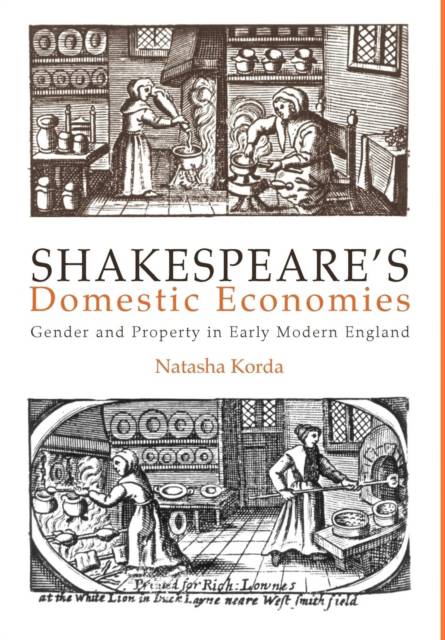
- Afhalen na 1 uur in een winkel met voorraad
- Gratis thuislevering in België vanaf € 30
- Ruim aanbod met 7 miljoen producten
- Afhalen na 1 uur in een winkel met voorraad
- Gratis thuislevering in België vanaf € 30
- Ruim aanbod met 7 miljoen producten
Omschrijving
Shakespeare's Domestic Economies explores representations of female subjectivity in Shakespearean drama from a refreshingly new perspective, situating The Taming of the Shrew, The Merry Wives of Windsor, Othello, and Measure for Measure in relation to early modern England's nascent consumer culture and competing conceptions of property. Drawing evidence from legal documents, economic treatises, domestic manuals, marriage sermons, household inventories, and wills to explore the realities and dramatic representations of women's domestic roles, Natasha Korda departs from traditional accounts of the commodification of women, which maintain that throughout history women have been "trafficked" as passive objects of exchange between men.
In the early modern period, Korda demonstrates, as newly available market goods began to infiltrate households at every level of society, women emerged as never before as the "keepers" of household properties. With the rise of consumer culture, she contends, the housewife's managerial function assumed a new form, becoming increasingly centered around caring for the objects of everyday life--objects she was charged with keeping as if they were her own, in spite of the legal strictures governing women's property rights. Korda deftly shows how their positions in a complex and changing social formation allowed women to exert considerable control within the household domain, and in some areas to thwart the rule of fathers and husbands.Specificaties
Betrokkenen
- Auteur(s):
- Uitgeverij:
Inhoud
- Aantal bladzijden:
- 288
- Taal:
- Engels
- Reeks:
Eigenschappen
- Productcode (EAN):
- 9780812236637
- Verschijningsdatum:
- 5/08/2002
- Uitvoering:
- Hardcover
- Formaat:
- Genaaid
- Afmetingen:
- 160 mm x 231 mm
- Gewicht:
- 589 g

Alleen bij Standaard Boekhandel
Beoordelingen
We publiceren alleen reviews die voldoen aan de voorwaarden voor reviews. Bekijk onze voorwaarden voor reviews.







